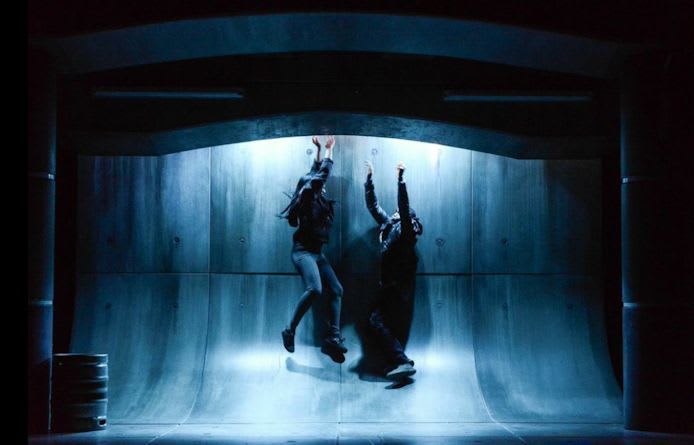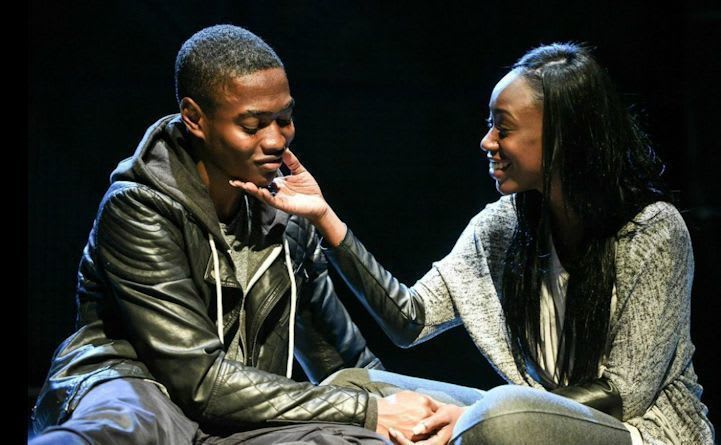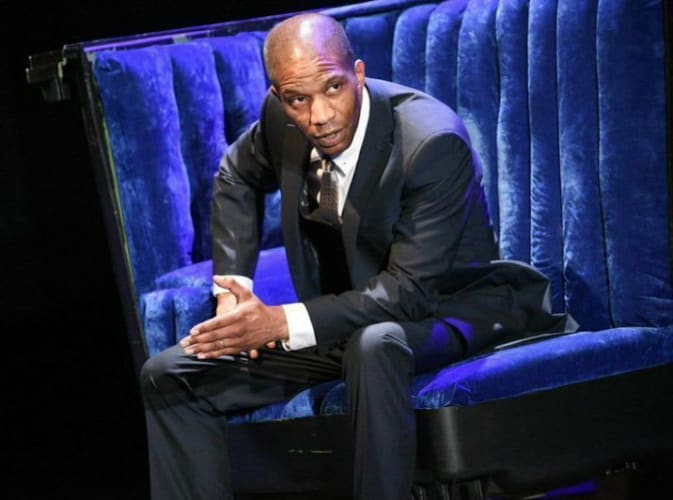Of all Greek tragedies, Antigone is probably the most accessible to modern audiences. Although it shares the same religious / philosophical background as the other two of Sophocles' Theban plays, Oedipus the King and Oedipus at Colonus, the focus is more on the human, moral dimension, the dilemma faced by Antigone brought about by Creon's decision to leave Polyneices' body unburied, a conflict between familial piety and state realpolitik.
In 1944, Jean Anouilh produced his version in Nazi-occupied Paris and managed to satisfy the censors by his portrayal of Creon's situation whilst the subtext, more apparent perhaps in performance than on the page, clearly favoured Antigone's rebellion.
Now Roy Williams has taken the story from the city of Thebes and put it in a nightclub in London's gangland, changing Creon from king to gang leader and the Seven Against Thebes war becomes a fight for supremacy between Orrin (Polyneices) and Eto (Eteocles) in which both die and Creo (Creon), who takes over the gang, makes Eto the goodie and Orrin the baddie whose body is to be left unburied to be fed upon by dogs.
Everyone must follow his command or die. Tig (Antigone), however, decides she must follow her heart and so the old story begins again—with the same consequences. What Williams adds, via a new top and tail to the story, is the suggestion that Creo, for the rest of his life, has to relive all the events every night as he sleeps.
Where Williams's version diverges from Sophocles' is in his portrayal of the Chorus. The old men of Thebes are replaced by some of the gang "soldiers", including the Guard who first arrests Antigone. This is not such a major change as it might appear at first for inevitably they are as supportive of Creo as Sophocles' old men are of Creon, favouring stability and preservation of the status quo.
What is missing is the religious background, the references to the gods and what they expect. One of the soldiers does make frequent mention of them but this is a kind of "minority report" which lacks the certainty of the original.
Another difference is in the portrayal of violence. In Greek tragedy it all happens off-stage and is reported by a messenger whereas here we see the death of Orrin, as well as a rather symbolic depiction of the deaths of Antigone and Eamon (Haemon).
In fact, Williams follows Anouilh rather than Sophocles in his portrait of the two young lovers, not only giving them time on stage together (as Anouilh did but Sophocles didn't) but making them actual lovers rather than just an engaged couple, adding to the sense of modernity, as does the greater importance of Creo's wife, Eunice (Eurydice in the orginal).
And the blind seer Teiresias becomes Tyrese, the elder "statesman" of the gang who, it is suggested by Creo, is a little too fond of skank, which removes the religious underpinning of Sophocles' version.
The setting for Marcus Romer's production, designed by Joanna Scotcher, is an underground car park, dark and dingy, with massive pillars with large sliding cage-like doors at the back, which converts to the interior of the nightclub by opening and swinging round the industrial sized wheelie bins which can be seen at various places at the edge of the stage to reveal the plush club seating. This makes for rapid transitions from scene to scene which keeps the pace moving.
The characters' "gangsta-speak" roots it firmly in its milieu, as do the use of mobile phones and the flickering projected images which hover on the verge of visibility throughout.
It's very much an ensemble piece and the cast of nine are all convincing throughout the 90 or so minutes, played without an interval.
So yes, it works. There is some humour and there are tensions galore within the gang, which, alongside Antigone's rebellion, contribute to the aura of threat which hangs over the whole thing and go a long way towards explaining the ambivalence of Creo's position at the end.


